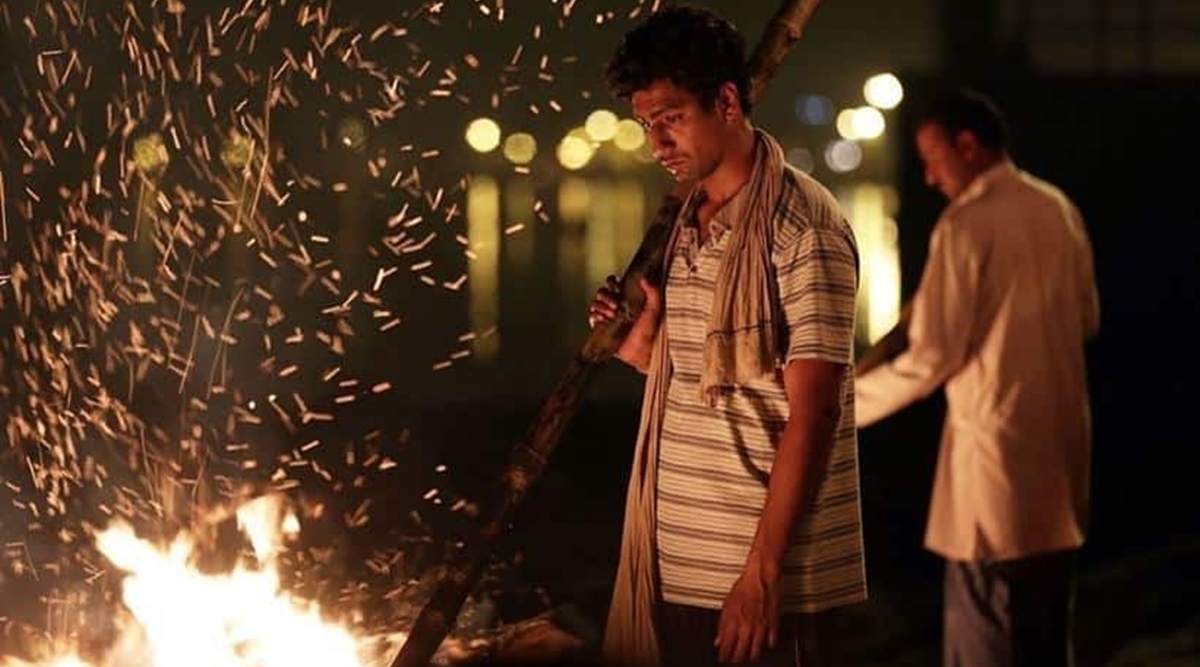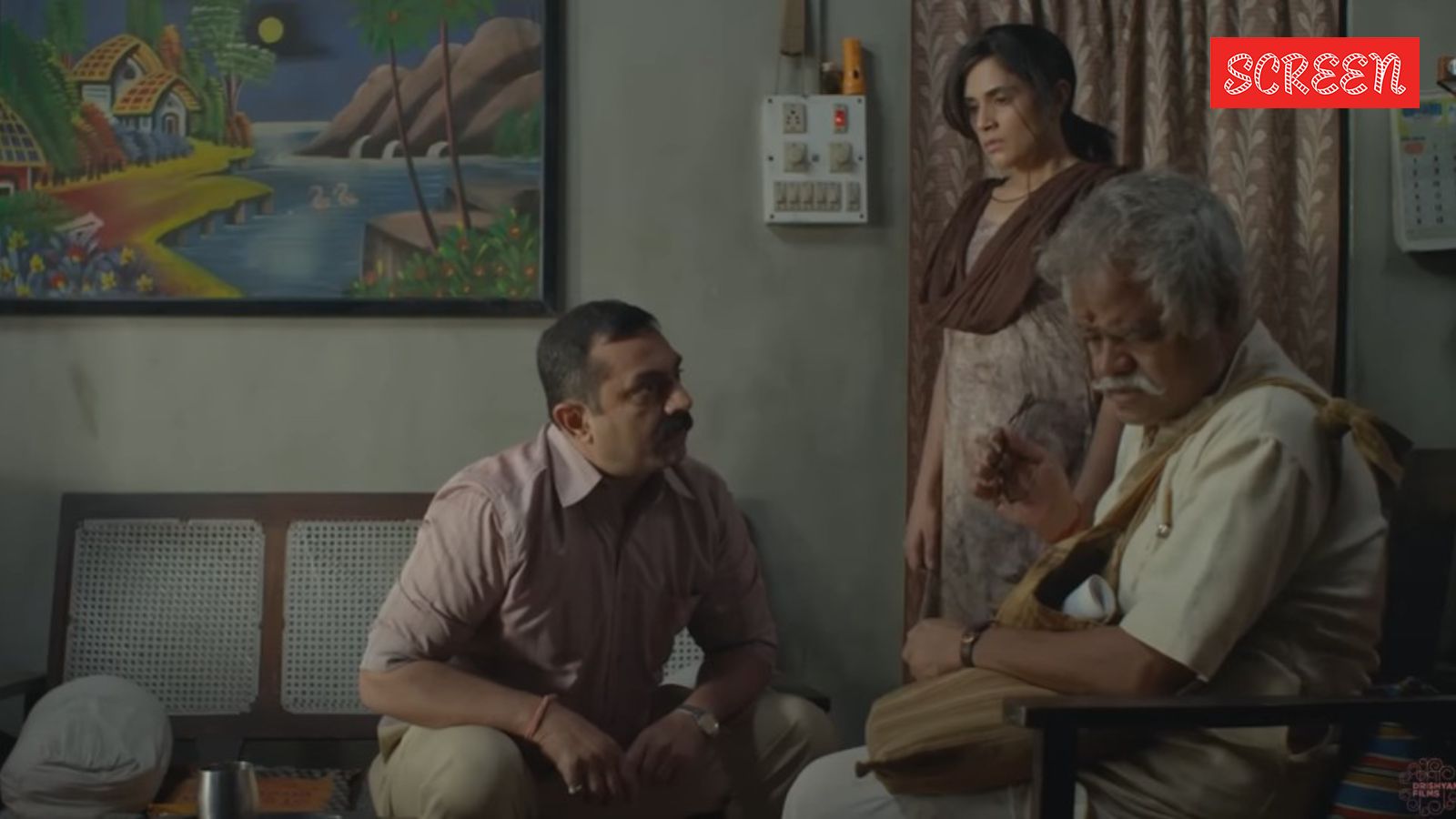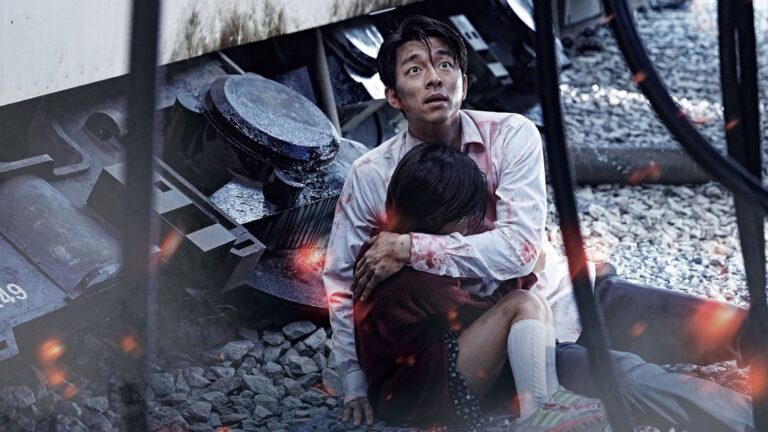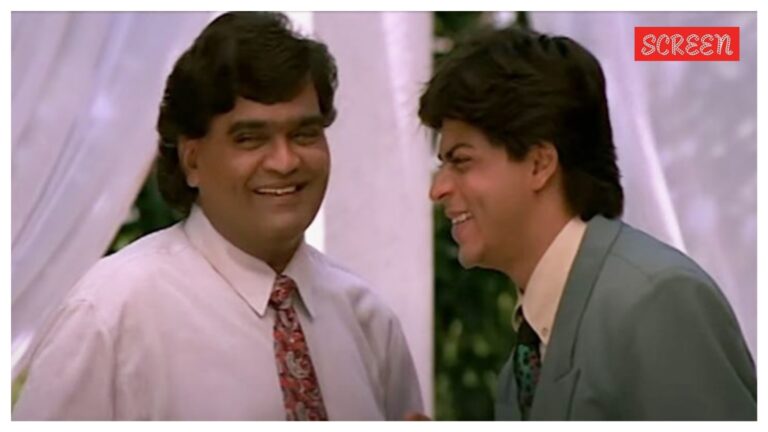In a world where films often scream to be heard, Masaan chooses to whisper. It doesn’t come at you with the sheer brutality of Sairat, the legal warfare of Jai Bhim, or the raw rage of Bandit Queen. And yet, its appeal is slow, simmering, unforgettable.
When I first watched the film, I didn’t quite understand what it was trying to say. It felt like a slice-of-life film: people go through heartbreaks, tragedies, humiliation, and then, somehow, life just… continues. But the more I let it sit with me, the more I understood: that’s the point.
Life goes on.
Disasters strike us all. For some, it’s heartbreak. For others, the loss of a loved one. For many, it’s the inherited burden of caste, of shame, of poverty — of being born on the wrong side of the line drawn by the society. And yet, even after the biggest storms, the river flows on–quiet, stubborn, eternal. Just like the Ganga in Banaras.
Devi (Richa Chadha) and Deepak (Vicky Kaushal) are two such survivors. Devi dares to love and explore her desires, but for that, she is shamed and blackmailed — dragged into a whirlpool of guilt and public humiliation. She is adult, educated, and in a hotel room with her partner, seeking the privacy that should have been her right. But the receptionist calls the police. The police record her, extort her. Because our society is not taught to mind its own business. That one moment ruins a life and ends another after her lover dies by suicide, fearing shame.
But Devi does not give up.
She walks through the fire. Faces her lover’s grieving family. Moves to another city. Refuses to break under judgment, showing us that survival is the boldest rebellion there is. She yells, “Maine nahi maara hai use!” (I did not kill him) when her father Vidyadhar Pathak (Sanjay Mishra) accuses her of bringing shame to the family. It is one of the rare moments she speaks up and let her emotions take over her.

Deepak, born into the Dom community, burns funeral pyres for a living. Unlike Dhadak, his love story with Shaalu (Shweta Tripathi) — a girl from an upper caste — is not marked by defiance, but by hope. Shaalu doesn’t reject him for his caste. She encourages him to study, to clear exams, to imagine a better life. But death arrives uninvited. A bus crash takes her away, and Deepak is left shattered.
Devastated at first, he carries her memory as strength. He finishes his exams and gets a job. His identity shifts — from Dom Raja’s son to Engineer Deepak. He breaks a generational cycle not with rage, but with quiet dignity. No dramatic speeches — no melodrama, just grit.
Story continues below this ad
Varun Grover’s Masaan shows, with brutal honesty, that caste doesn’t just kill love–it shapes identity. In India’s towns, villages, and even cities like Banaras, people still live under the constant gaze of others. One mistake, one label, one scandal–and society marks you for life. Devi becomes “the girl who had sex.” Deepak becomes “the Dom boy who dared.” But both of them fight those labels every single day—not with fists, but with choices. With dreams.
That’s what sets Masaan apart from films like Dhadak or the upcoming Dhadak 2, where caste conflict is framed largely as romantic tragedy. Masaan doesn’t just show caste killing love. It shows it stifling jobs, homes, futures, language, freedom. It shows people not dying for love, but living through judgment.
Watching Masaan made me realise how privileged many of us are. We get to rebel and move cities. We get to start over and make mistakes. For most Deepaks and Devis, even that is a luxury. In India, caste still decides worth. Even in its most progressive corners, people hide their surnames. There are still hotels that judge; police that blackmail and people who gossip.
And yet, there are people who quietly resist. Who create new identities–not by erasing their past, but by building a future in spite of it.
Story continues below this ad
The brilliance of Masaan lies in its restraint. It doesn’t want to shock you–it wants to stay with you. The film doesn’t glorify rebellion; it glorifies endurance. It shows us that the fight isn’t always loud. Sometimes, it’s just waking up and choosing to live.
When Devi lets go of the gift her lover gave her and decides to take the course she loves, when Deepak finally releases Shaalu’s ring from his fingers and focuses on his exams and job hunt — it’s not about forgetting, it’s about healing and closure, choosing to breathe again.
We may never stop society from judging. There will always be someone who points fingers, spreads rumours, or tries to pull you back into shame. But Masaan teaches us that we don’t need to answer them. We just need to keep walking forward.
Because in the end, life isn’t about proving your worth to society. It’s about proving it to yourself.
Story continues below this ad
Masaan wasn’t meant to entertain. It was meant to reflect. To provoke. And even ten years after its release, it hasn’t lost its relevance–or its power.
























